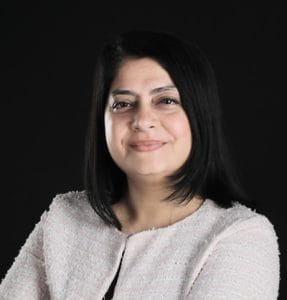Healing from Complex Trauma (C-PTSD)
Summary
This page explores complex trauma and how it can quietly shape a person’s emotional world, relationships, and sense of self over time. Many people with complex trauma do not identify with a single traumatic event but instead recognize long-standing patterns such as chronic shame, emotional overwhelm, hypervigilance, dissociation, difficulty trusting others, or feeling unsafe even when life appears stable. The page explains why these experiences are adaptive survival responses of the nervous system to prolonged relational or developmental stress. It also outlines how trauma-informed psychiatric care and therapies such as Deep Brain Reorienting (DBR) Therapy, Internal Family Systems (IFS) and EMDR can support gradual, compassionate healing by prioritizing safety, emotional regulation, and integration rather than forcing exposure or symptom suppression.

What is Complex Trauma or C-PTSD?
Complex PTSD is a psychological and relational aftermath from unresolved past emotional wounds, especially those experienced in childhood.
It is a group of symptom patterns originating from childhood trauma and attachment injuries. It can also emerge from repeated exposure to adult relational traumas.
According to the National Child Traumatic Stress Network, complex trauma stems from early-life experiences of abandonment, neglect, emotional abuse, or inconsistent caregiving.
Witnessing parents’ violence and arguments and feeling alone and overwhelmed in all of these creates grounds for developing C-PTSD later in life.

Kinds of Trauma that Result in Complex-PTSD
- Emotional, physical, or sexual abuse in childhood
- Emotional detachment, neglect, and isolation
- Attachment injuries resulting from caregivers
- Emotionally unavailable parenting
- Witnessing parental conflicts or domestic violence
- Experiences of abandonment or inconsistent caregiving
- Repeated exposure to fear, shame, or rejection
- Growing up in foster care or institutional systems
- Living in marginalized or systemically oppressed communities
For many, it is helpful to begin with an understanding of their Adverse Childhood Experiences (ACE) Score.
The ACE Score highlights how emotional and physical health symptoms are often linked to unresolved childhood trauma. However, it is not a replacement for a full mental health evaluation and should be interpreted within the broader context of therapy and support.

Personal trauma
C-PTSD can be a result of an experience or experiences that generate emotional and physical overwhelm one time or repeatedly. These are often carried within us in isolation.

Generational Trauma
Inherited burdens passed on from generations can be unconsciously manifested as repeating the same patterns of living, parenting, showing emotions, expressing oneself, shame, secrecy, violence, or abuse. If we remain bound to the cords of our generations, likely these will be passed on to our future too.
Cultural Trauma
Systemic influences from culture, society, and institutions unknowingly can be absorbed by us and taken as our facts that we require to live by. Inner critics react harshly if we deviate from what has been set as a cultural norm and rules.
Symptoms of Complex Trauma in Adults
Typical PTSD symptoms involve intrusive memories, flashbacks, avoidance of thinking about the trauma, and nightmares.
However, in those with Complex PTSD (C-PTSD), the impact is deeper—affecting a person’s sense of identity, ability to trust themselves and others, capacity to regulate emotions, and interpersonal relationships.
Dissociation, self-harm, and coping with substances or addictions are also common in those living with C-PTSD.
Latest Research Highlights
Research on complex trauma shows that many people develop coping mechanisms such as
- Pleasing and over-apologizing
- Risk-avoiding and hyper-vigilance for danger
- Conflict avoidance and people-pleasing
- Perfectionism and over-performing
- Deep struggles with emotional intimacy
Learn more from the National Child Traumatic Stress Network , which offers extensive research and education on complex trauma in children and adults.
👉 Swipe to explore: C-PTSD and Attachment Trauma
Learn More →
How is Complex PTSD diagnosed? Assessment and who can diagnose it
The diagnosis of Complex PTSD is typically made by a psychiatrist, or by a psychologist. It is informed by clinical history, relational patterns, and trauma exposure.
Common C-PTSD Triggers
When someone lives with Complex PTSD, triggers—both known and unconscious—can provoke intense emotional, psychological, or somatic reactions.
Examples of Common Triggers
- Body language, tone, or expressions perceived as threatening
- Conflict, confrontation, or criticism
- Feeling rejected, abandoned, excluded, or let down
- Relational disappointment or betrayal
- Physical proximity or emotional intimacy that feels unsafe
- Being misunderstood or emotionally overlooked
According to the National Child Traumatic Stress Network , understanding and working with personal triggers is a foundational step in healing Complex PTSD.
Coping Patterns in Complex PTSD
Many coping behaviors in C-PTSD are described as “safety behaviors”—protective in function, but they often prolong distress rather than resolve it.
Examples of Coping Behaviors
- Daydreaming, zoning out, checking out, or switching off
- Using play or imagination in childhood to distract from distress
- Adult forms of distraction (e.g. screen use, work, media)
- Using food, or being preoccupied with weight and appearance
- Turning to substances, alcohol, spending, or social media
- Workaholism, perfectionism, and overachieving to feel worthy
- Avoiding feelings, triggers, people, or situations
- Pre-emptive planning or rehearsing as a defence
- Anxiously preparing for worst-case scenarios
Source: National Center for Biotechnology Information (NCBI)
Treatments for C-PTSD: What Helps and Why
Healing from Complex PTSD is not a one-size-fits-all process. It often requires therapies that go beyond traditional talk therapy—approaches that work with the body, nervous system, and the fragmented parts of the self. Below are several evidence-informed methods that support long-term recovery:
- Deep Brain Reorienting Therapy; DBR works by guiding attention to early bodily responses to threat, addressing deep physiological shock, and helping the nervous system process trauma more effectively than talk-only approaches. Although research is still growing, these results support DBR’s potential as a trauma therapy that targets PTSD at both psychological and neurobiological levels.
- Internal Family Systems (IFS) Therapy—Helps individuals work compassionately with inner parts, unburden past trauma, and restore internal harmony. Especially effective for survivors of childhood and relational trauma.
- Eye Movement Desensitization and Reprocessing (EMDR)—Uses bilateral stimulation to help the brain reprocess traumatic memories. Backed by decades of research and recommended for PTSD by the World Health Organization and APA.
- Somatic Experiencing (SE)—Developed by Dr. Peter Levine, SE works with the body’s stored trauma responses and supports nervous system regulation.
- Trauma-Focused Cognitive Behavioral Therapy (TF-CBT)—A structured approach that helps children, adolescents, and adults process trauma through cognitive restructuring and emotional skill-building.
- Sensorimotor Psychotherapy—Integrates somatic therapy with attachment theory and cognitive approaches to address how trauma lives in the body and interrupts developmental pathways.
Intro sentence
↓
FAQ Key Box
FAQs — Healing from Complex Trauma (C-PTSD)
- 1. Is Complex PTSD the same as PTSD?
- 2. Can Complex Trauma be completely healed?
-
3. How is Complex PTSD diagnosed?
It is diagnosed by a psychiatrist or clinical psychologist after assessing trauma history, attachment patterns, and symptoms. In ICD-11, C-PTSD includes PTSD features plus disturbances in self-organisation — identity, emotion regulation, and relationships.
-
4. What are the signs that I might have Complex Trauma?
- Emotional dysregulation or numbness
- Chronic guilt, shame, or inner criticism
- Relationship anxiety, avoidance, or people-pleasing
- Dissociation, hypervigilance, or body tension
- Feelings of unworthiness or identity confusion
-
5. What therapy works best for Complex PTSD?
- IFS Therapy — builds self-compassion and heals wounded inner parts.
- EMDR Therapy — reprocesses traumatic memories through bilateral stimulation.
- Somatic Therapies — help release trauma held in the body.
-
6. Is medication necessary for C-PTSD?
Not always. Medication can help stabilise sleep, anxiety, or mood to support therapy. A psychiatrist such as Dr Millia Begum can advise whether medication, therapy, or both are appropriate.
-
7. Can I start therapy even if I feel scared or not ready?
Yes. Trauma-informed therapy moves at your pace, focusing first on safety and trust. In IFS, protective parts are met gently; in EMDR, preparation precedes memory work.
-
8. How long does therapy for Complex Trauma usually take?
Healing has no fixed timeline. Some clients notice change within months; deeper recovery may take longer. Consistency, compassion, and a trusting therapeutic relationship matter most.
-
9. Does Complex Trauma affect physical health too?
Yes. Chronic trauma can disrupt sleep, energy, immunity, and digestion. Mind-body therapies addressing the nervous system help restore physiological balance.
-
10. Is Complex PTSD common among expats in Dubai?
It can be. Relocation, isolation, and cultural shifts may trigger or magnify trauma patterns. Culturally sensitive therapy in Dubai helps process both personal and situational layers safely.
Related Trauma & Recovery Resources
Individuals exploring treatment for Complex Trauma (C-PTSD) often benefit from learning about related trauma patterns, attachment injuries, and evidence-based therapies used in recovery. These resources offer deeper guidance.
About Dr. Millia
Dr. Millia Begum is a trained trauma specialist with over 25 years of clinical experience in psychiatry and therapy. She trained in the UK’s NHS system and served the NHS in various senior roles.
is a trained trauma specialist with over 25 years of clinical experience in psychiatry and therapy. She trained in the UK’s NHS system and served the NHS in various senior roles.
She is a former EMDR Europe Approved Consultant, EMDR researcher, and board member of the EMDR Association UK. She is now a member of the EMDR International Association (EMDRIA).
Dr. Millia is a Certified Internal Family Systems (IFS) Therapist, bringing a compassionate, parts-informed approach to her work with clients in Dubai.